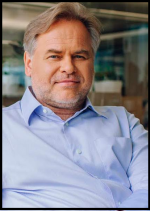Yevgeny Valentinovich Kaspersky was born in 4 October 1965 in Novorossiysk, Soviet Union. He grew up close to Moscow, where he moved at age nine. As a youngster he fostered develop an early interest in math and innovation technology. He is a Russian network safety master and the CEO of Kaspersky Lab, an IT security organization with 4,000 workers. He helped to establish Kaspersky Lab in 1997 and distinguished occurrences of government-supported cyberwarfare as the head of examination. He has been a promoter for a worldwide settlement precluding cyberwarfare. Kaspersky moved on from The Technical Faculty of the KGB Higher School in 1987 with a degree in numerical designing and PC innovation. His advantage in IT security started when his work PC was tainted with the Cascade infection in 1989 and he fostered a program to eliminate it. Kaspersky developed Kaspersky Lab through security exploration and charisma. He turned into the CEO in 2007 and remains so starting at 2020.
His dad was an architect and his mom an authentic filer. He invested his free energy perusing math books and won second spot in a math competition at age 14. Kaspersky lives in Moscow, Russia with his significant other and five children. He and his first spouse were separated in 1998. On 21 April 2011, his child, Ivan, then, at that point 20, was kidnapped for a $4.4 million ransom. Kaspersky worked with a companion at the FSB and Russian police to follow the ransomer's call. They put out up a snare for the ransomers, where they saved his child and captured a large number of the kidnappers. The occurrence affected Kaspersky's feeling of individual security. He presently goes with a protector and security detail. He has an interest in Racing and drives his super sports vehicles on race tracks as a hobby. He additionally enjoy photography as a hobby. Kaspersky is known for avoiding formal clothing, regularly dressing in jeans and a shirt.
Kaspersky's advantage in IT security started in 1989, when his PC was tainted by the Cascade virus, while working for the Ministry of Defence. He concentrated how the infection worked and fostered a program to eliminate it. Afterwards he ceaselessly found new infections and created programming to eliminate them, as a hobby. Early on Kaspersky's enemy of infection programming had only 40 infection definitions and was disseminated generally to companions. In 1991, Kaspersky was allowed an early delivery from his military service and left the safeguard service to take some work at the Information Technology Center of a privately owned business KAMI, to deal with his antivirus item full-time. In 1991, Kaspersky was allowed an early delivery from his military service and left the safeguard service to take some work at the Information Technology Center of a privately owned business KAMI, to deal with his antivirus item full-time. Kaspersky's organization filled rapidly in the last part of the 1990s. From 1998 to 2000, its yearly income grew 280% and by 2000 just about a little over half of incomes were global.
